Penn Roybal Center Hosts 11th Annual Retreat
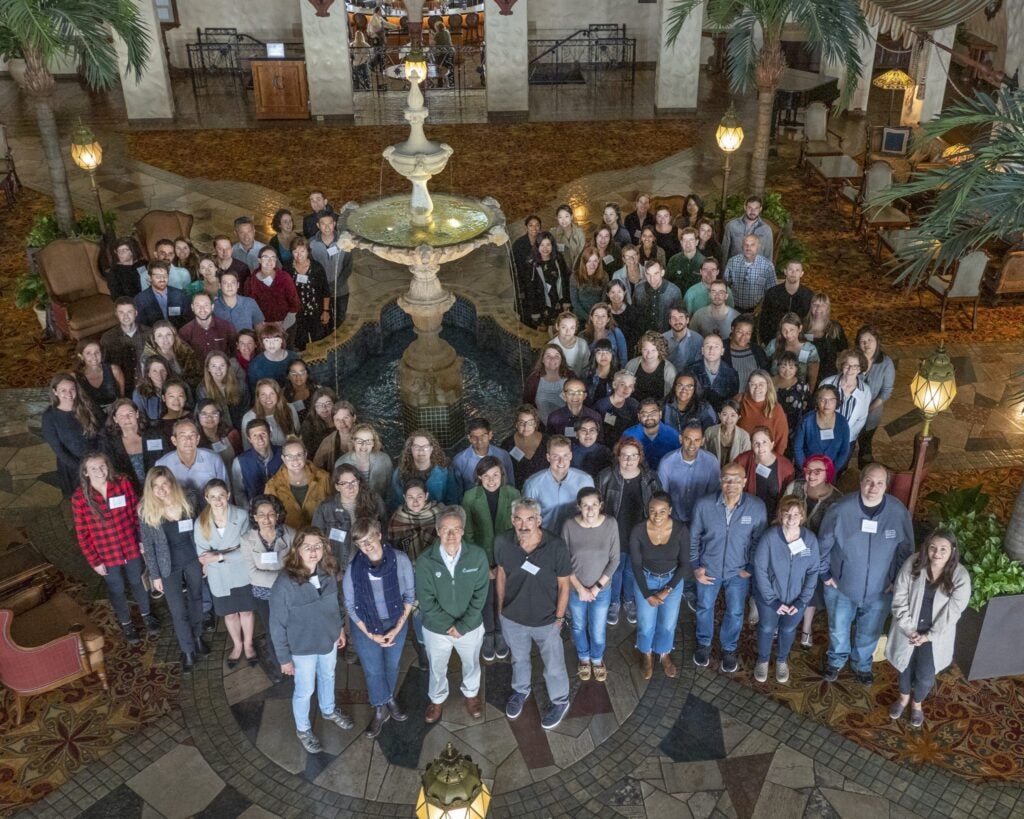
The 2019 Penn Roybal Center Retreat – on the heels of Rosh Hashanah – was an opportune time to reflect on sweetness and renewal.
The retreat, which took place October 3 and 4, brought together members of Penn’s Center for Health Incentives & Behavioral Economics (CHIBE), and Carnegie Mellon University’s Center for Behavioral and Decision Research (CBDR), who collaborate on the recently renewed National Institutes of Health’s P30 Roybal Center on Behavioral Economics and Health.
Alison Buttenheim, PhD, MBA, (interim director of CHIBE while Kevin Volpp, MD, PhD, is on sabbatical) remarked on the sweetness of the retreat location in Hershey, PA, and the sweetness of “getting together with folks we don’t always get to see.”Dr. Buttenheim also spoke of the sense of renewal after spending two days listening to colleagues sharing their research.
“I always appreciate our renewed commitment to the field, which is so enhanced by getting to see the interdisciplinary work, getting to hear research presentations from our colleagues, and getting to see the work of our trainees and staff in the poster presentations,” she said.Dr. Buttenheim also shared her excitement about Dr. Volpp’s return to CHIBE in a few months after his sabbatical ends.
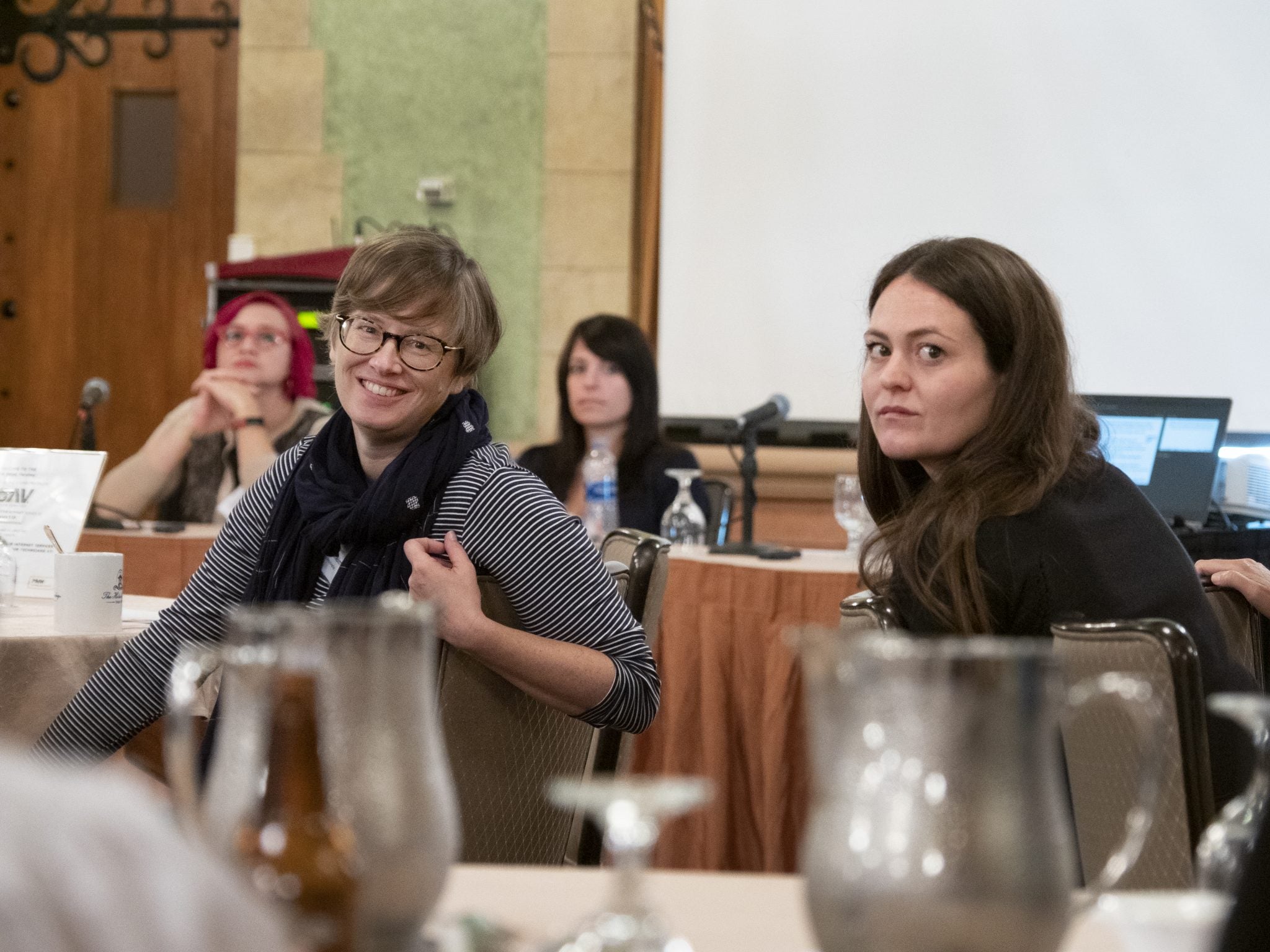
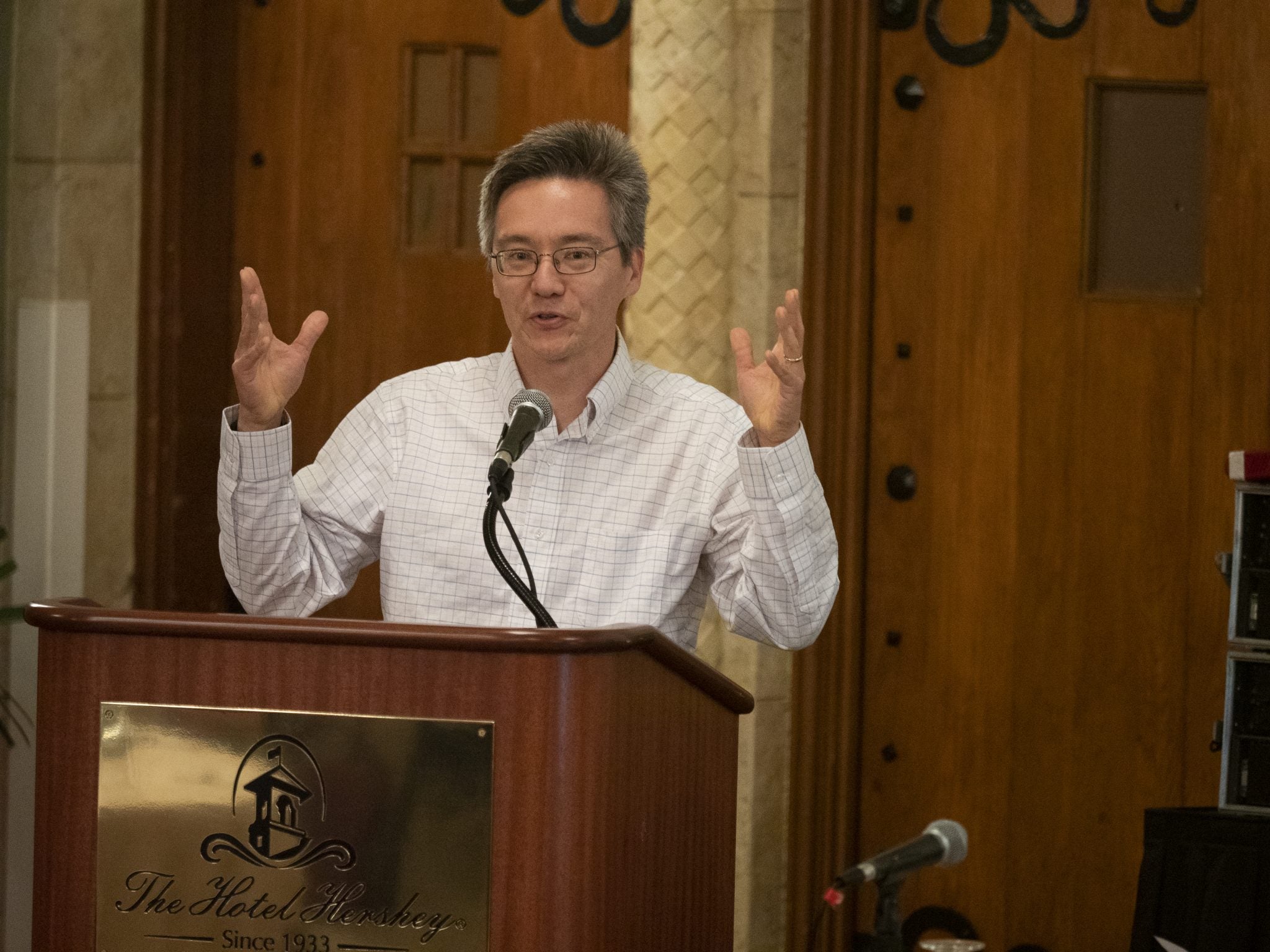
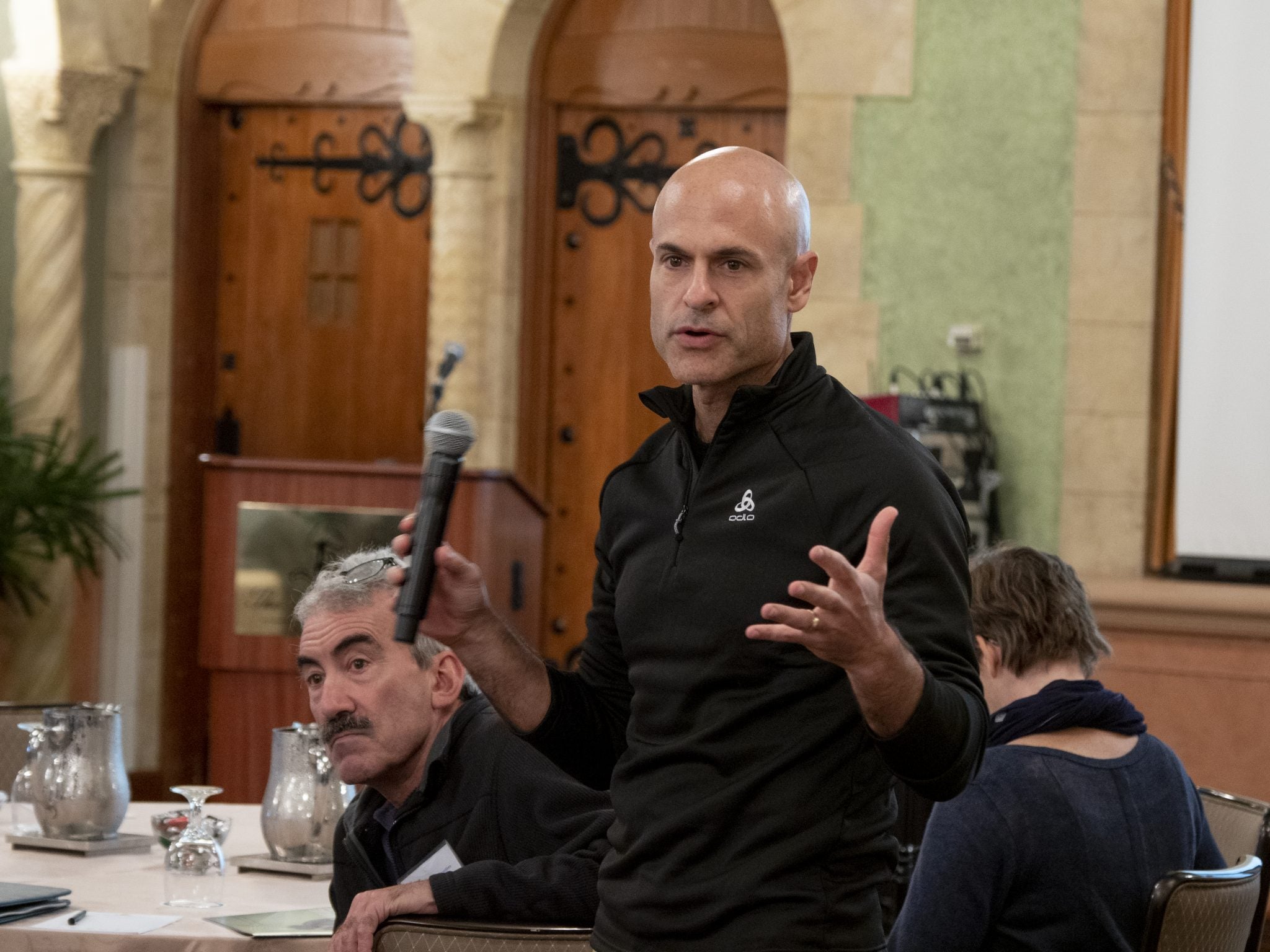
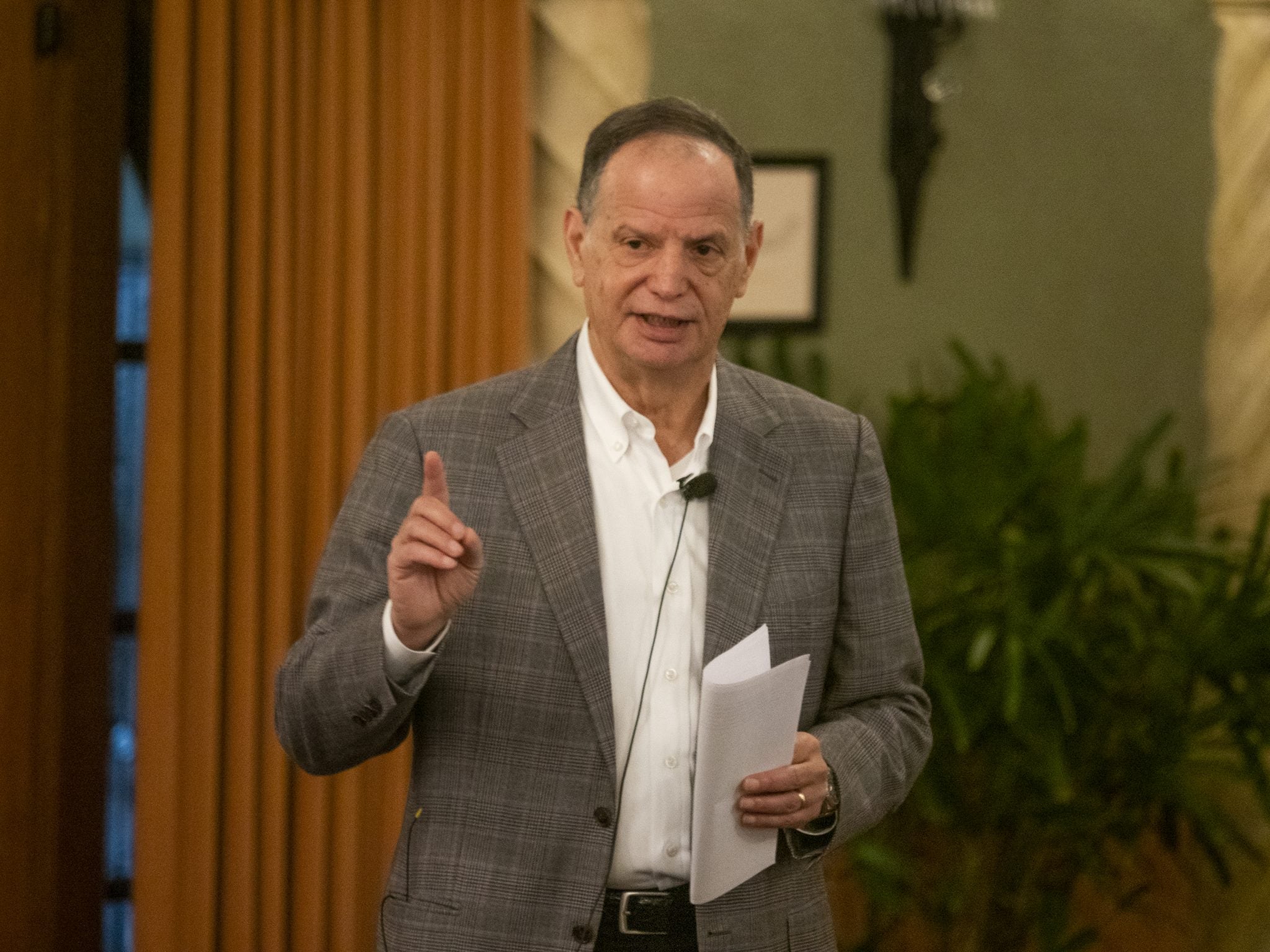
“Kevin has spent time talking with people, speaking, reading, learning different methods, getting new insights and directions,” she said. “The excitement he will bring back at the end of his sabbatical will also renew our interest and focus in the field.”In Dr. Volpp’s opening remarks, he highlighted that this retreat brought together 117 attendees, 31 of whom were attending for the first time. There were 102 representatives from Penn, 10 from CMU, and 5 from other universities. Dr. Volpp also shared more about the exciting news that the Roybal Center had been renewed, and that Scott Halpern, MD, PhD, MBE, director of the Palliative and Advanced Illness Research (PAIR) Center, had led a team that successfully competed for a new second Roybal Center at Penn called Transforming Residential Palliative Care for Persons with Dementia through Behavioral Economics and Data Science.“We’re the only university in the United States that will have two Roybal Centers, so it’s a real testament to the bench strength and high quality of the work you all have done in the last five years that the peer reviewers at the National Institute on Aging saw fit to award us with two Roybal Centers,” Dr. Volpp said.The keynote speaker this year was David B. Pryor, MD, former executive vice president of Ascension and former president and CEO of Ascension Clinical Holdings, who spoke on taking promising ideas to scale.
Some of the tips he offered were to:
- Develop a concise elevator pitch for your idea.
- Piggyback on existing trends, which will make your idea easier to implement.
- Examine the diffusion of innovations theory (2.5% of people are innovators, 13.5% are early adopters, 34% are early majority, 34% are late majority, and 16% are laggards) and focus just on the innovators and early adopters when you first start out.
- Consider what in your work culture is preventing your strategy from being implemented.
- Ask yourself questions, such as: “Do I want to get credit or do I want to get the job done?” or “Do I want to be right, or do I want to be effective?”

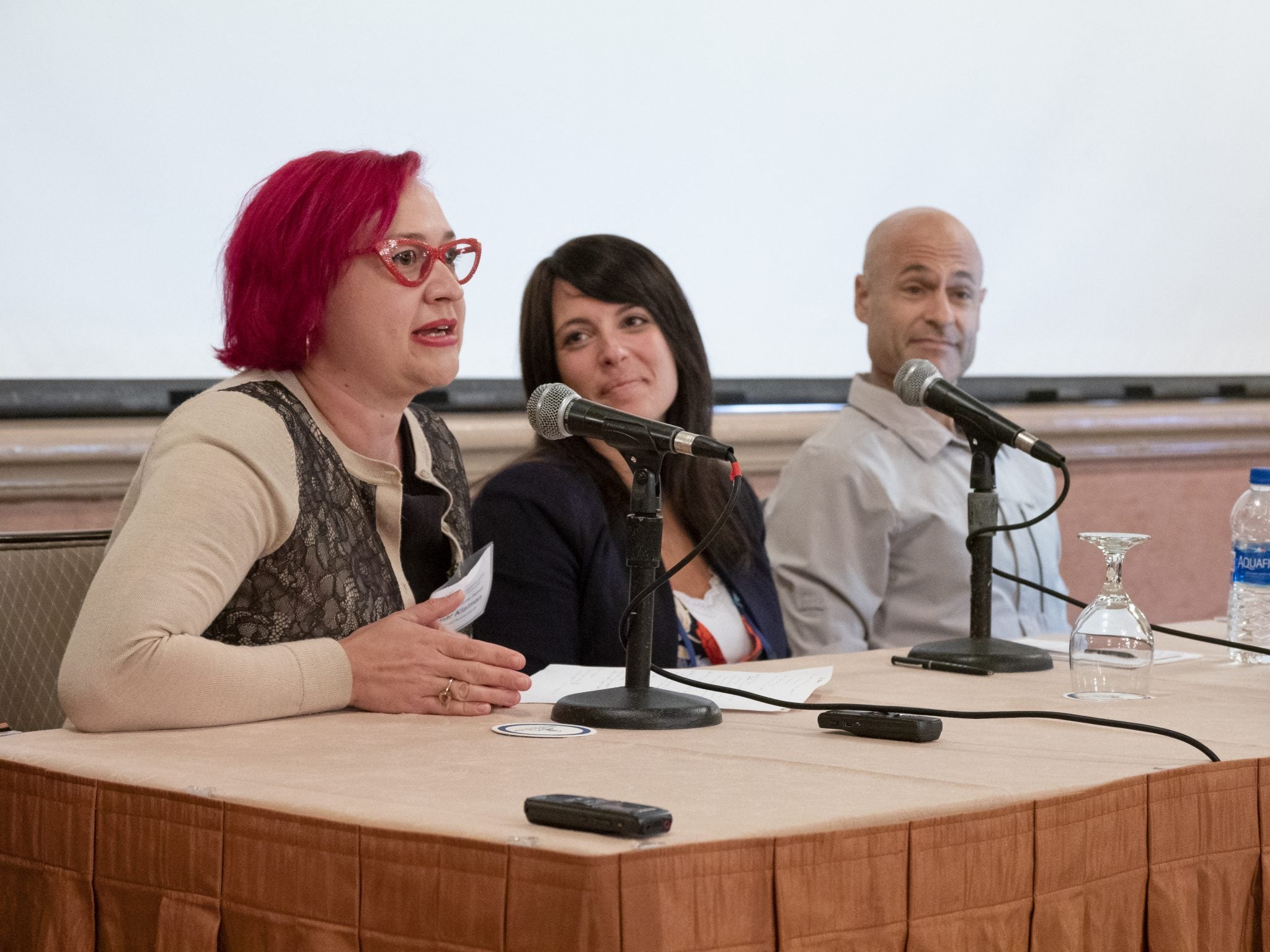
The retreat also featured a workshop led by Mohan Balachandran, MA, MS, on designing for health care and for delight. He highlighted that while health care delivery often involves far less than 5-star experiences, imagine a world in which health providers strive to provide 6-, 7-, 8- or 9-star experiences. What might that look like? Attendees worked in small groups on a case study of a patient dealing with experiences like a cancer diagnosis, depression, or knee surgery. For each step in the process – the appointment process, diagnosis, counseling, treatment, etc. – they had the opportunity to brainstorm ways to spark delight into these often frustrating or daunting moments for patients that were then shared with the broader group.Dr. Halpern; Rinad Beidas, PhD; and Tamar Klaiman, PhD, MPH; also led a fireside chat on the value of qualitative research. The trio talked about the importance of building qualitative methods into a research project from the very beginning and the significance of having storytelling in partnership with the hard data. Dr. Klaiman, a senior qualitative research scientist for CHIBE and PAIR, gave Drs. Beidas and Halpern feedback and advice on how to embed qualitative data into two of their projects.
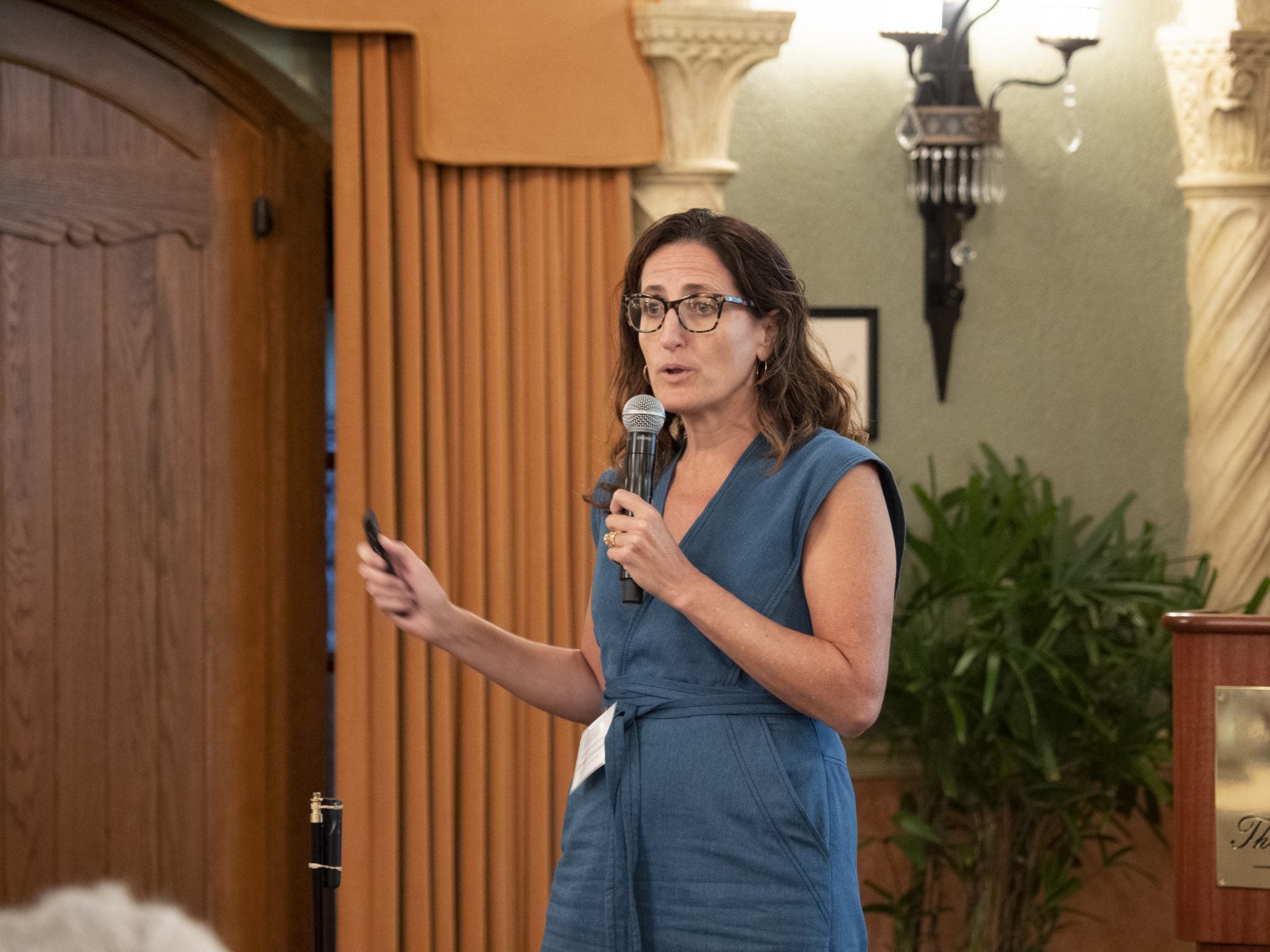
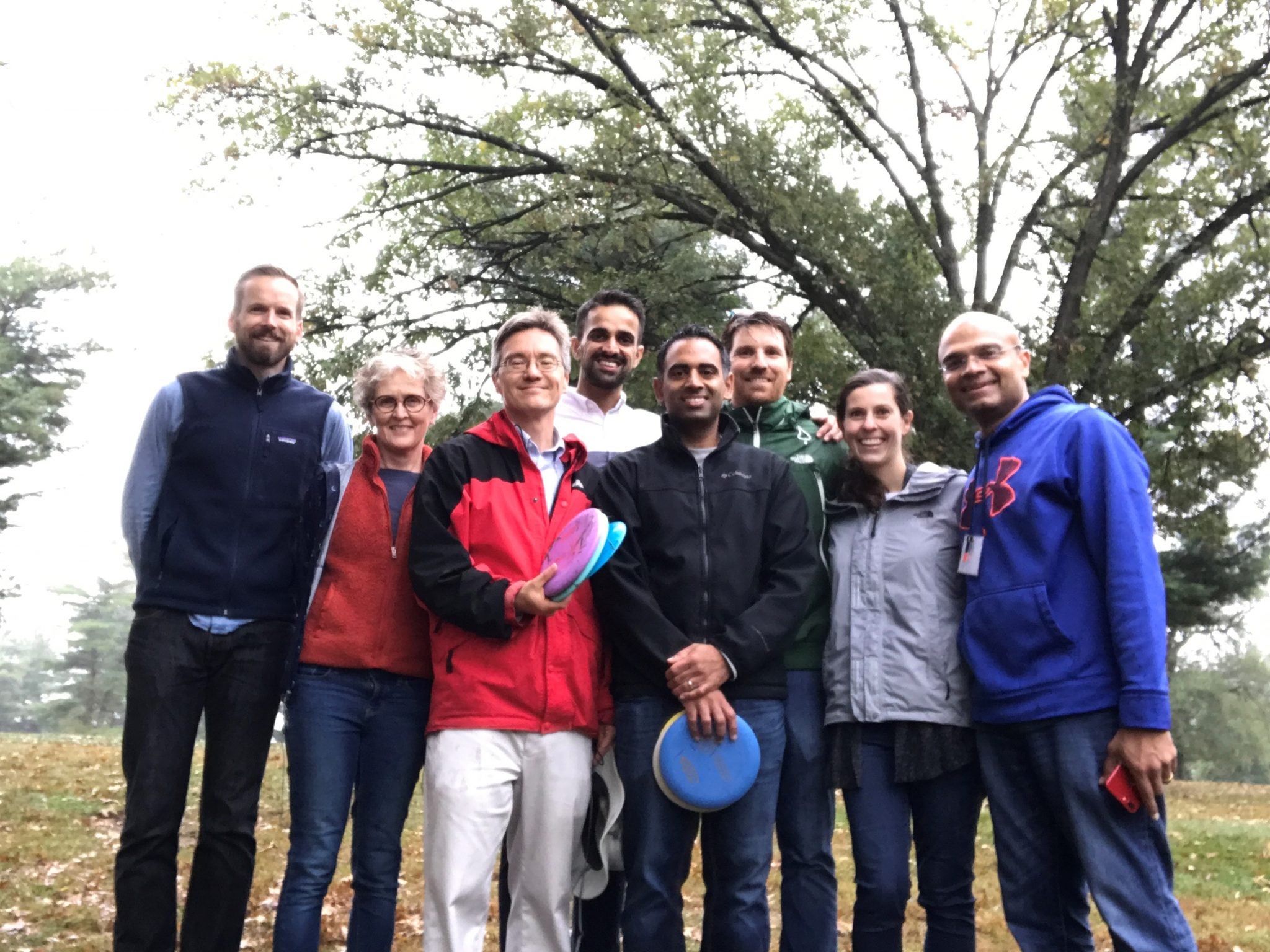

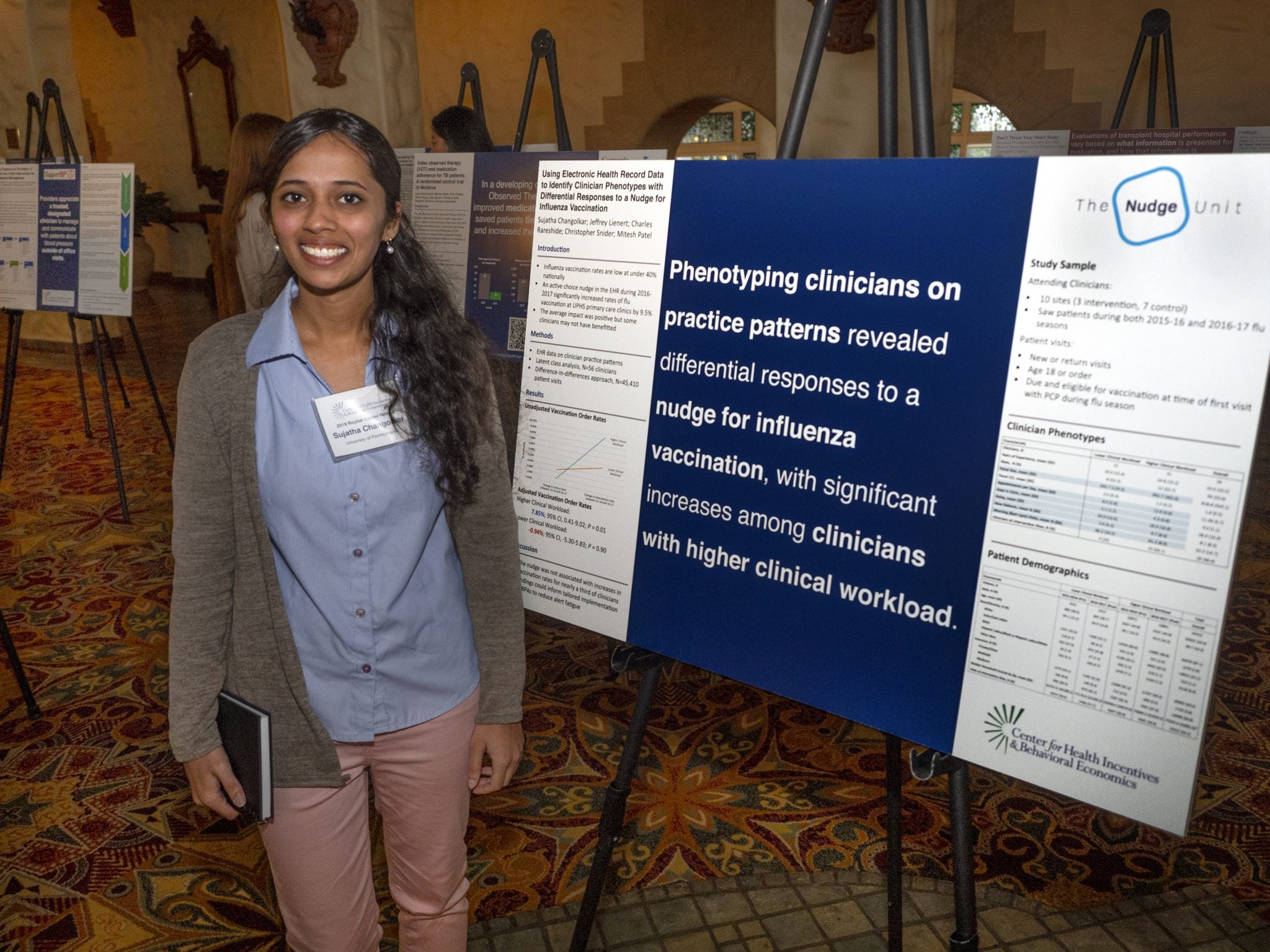
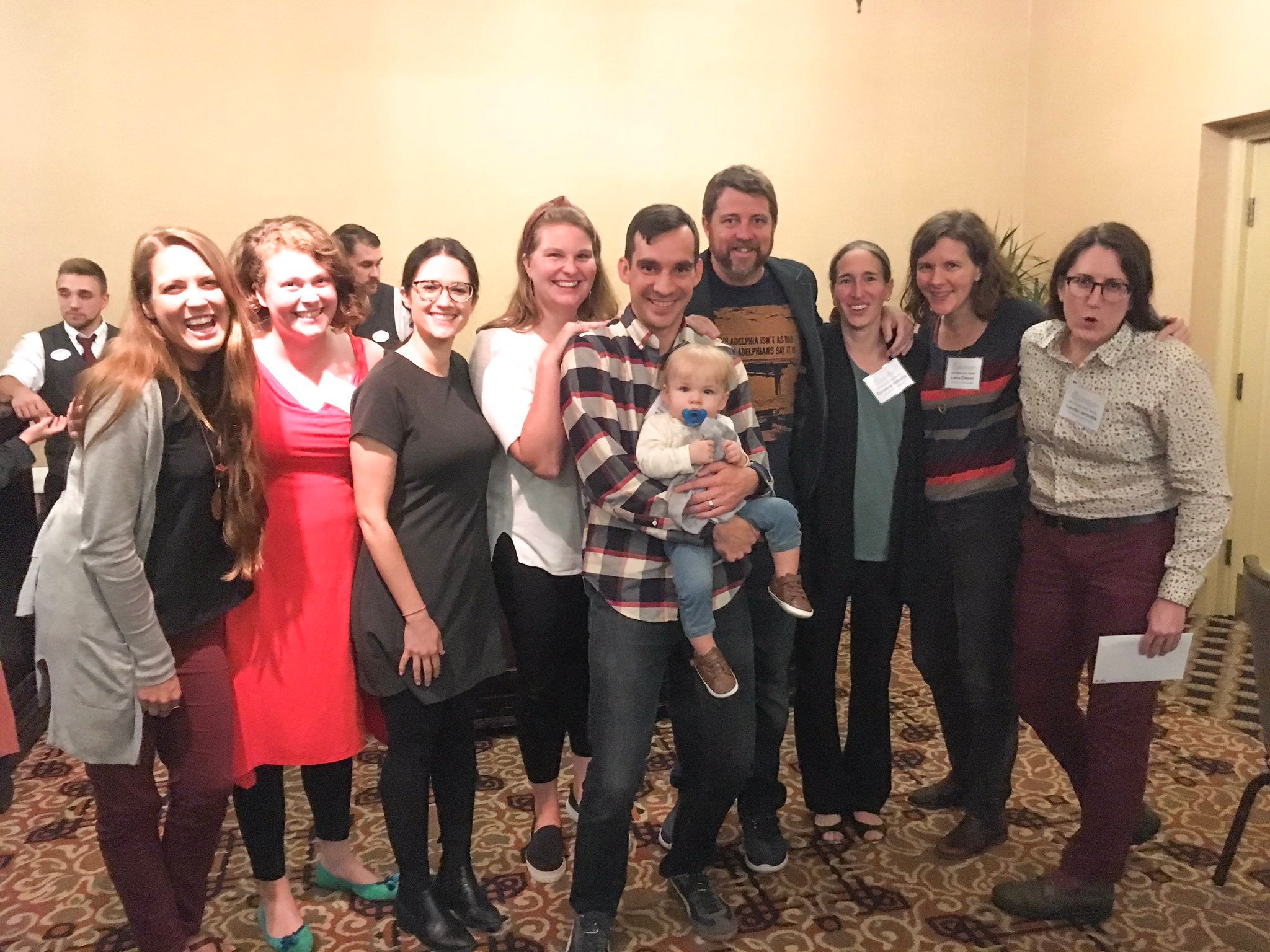
“If you want to know why something is happening, that’s when qualitative methods can really benefit the work you’re doing,” Dr. Klaiman said.The research presentation section began with five that tackled the topic of opioids, followed by talks on subjects such as sleep, cognitive biases, Medicaid, weight loss, and more. Presenters ranged from senior faculty members to trainees and represented Penn, CMU, Pitt, and the University of Utah.The Roybal retreat also featured team-building activities – disc golf or a tour of the Hershey Gardens – which provided an opportunity to build and strengthen relationships across disciplines and institutions.The poster sessions served as another opportunity to build connections and learn more about the work that the Penn and CMU teams have been working on. About 15 staff members and trainees presented posters on topics ranging from behavioral economic approaches to increase physical activity among patients with elevated risk for cardiovascular disease, to loss aversion, to video observed therapy and medication adherence for TB patients.Finally, congratulations to the Quizzo team “Sweet Baby James” who won the trivia competition led by Johnny Goodtimes.
Thanks to Hoag Levins for photographing this event. View a gallery of photos here.